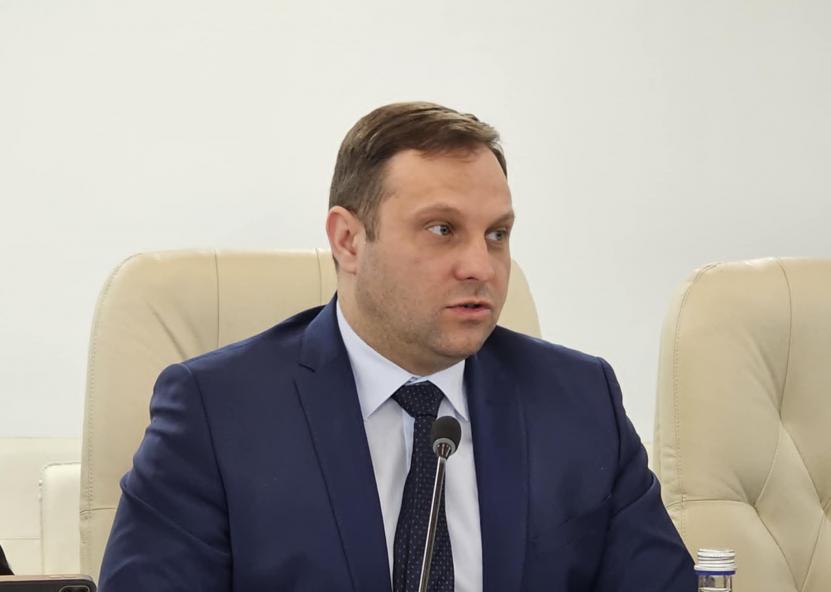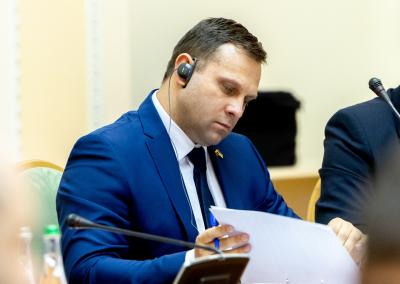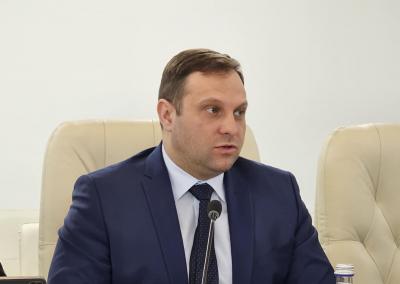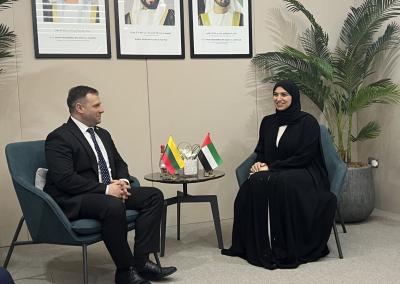I.Hofmanas: Ban on imports of agricultural products from Russia is a moral right of Lithuania
After the leader of the ruling coalition member "Nemunas aušra" explained that "the Dawn of Nemunas" does not support the proposal to extend the ban on agricultural imports from Russia and Belarus, the party's delegated Minister of Agriculture Ignas Hofmanas said that he supports the restriction, as Lithuania has a moral right to impose it.
„Food cannot be sanctioned according to international agreements, but Russia itself does not comply with international agreements and is illegally present on the territory of Ukraine (…). From a moral point of view, why can't we also take measures. We have to take them," Hofmann told BNS on Tuesday.
„From a moral point of view, we are doing the right thing by prolonging (the ban – BNS)“, – he said.
„Nemunas aušros“ chairman Remigijus Žemaitaitis said on Monday that the group did not support the government's proposal to extend the national sanctions on Russian and Belarusian citizens, while maintaining the ban on importing agricultural products, which is not banned in Latvia and Poland.
The politician explained that the Baltic countries and Poland should adopt such a ban together, so that Lithuania's sanctions would not be circumvented through its neighbours and the country would not lose revenue.
Minister Hoffmann said that national sanctions have loopholes, but by continuing them Lithuania is showing its principled position.
„It is not as effective as it could be (banning imports only to Lithuania – BNS), the sanctions can be circumvented through the territories of those countries, especially Latvia, because geographically it works out that way. But there are other things – moral things“, – stressed I. Hofmanas.
As BNS reported, the Seimas last week, after a tabling exercise, approved a proposal to extend national sanctions against Russians and Belarusians for another year. Three members of the Dawn group voted in favour, Robertas Puchovičius voted against and 11 abstained, including R. Žemaitaitis.
The Minister stressed that he „certainly supported“ this decision of the Seimas, but that similar restrictions require the widest possible agreement across the EU.
„Then there would be an effect. There is the aspect that Lithuania is small and has little power. There should be a broader agreement (BNS), and I would like to see those countries through which the sanctions can be circumvented to take similar steps, especially those that have a border with Russia," Hofmanas told BNS.
He also acknowledged that the import ban benefits Lithuanian farmers because it reduces competition: „We produce a lot of agricultural products ourselves. Perhaps it is even better for us in this sector because there is less competition from third countries.
The law on the imposition of restrictive measures due to military aggression against Ukraine is valid until 3 May 2025, and the government proposes to extend its validity until 2 May 2026.













































































































